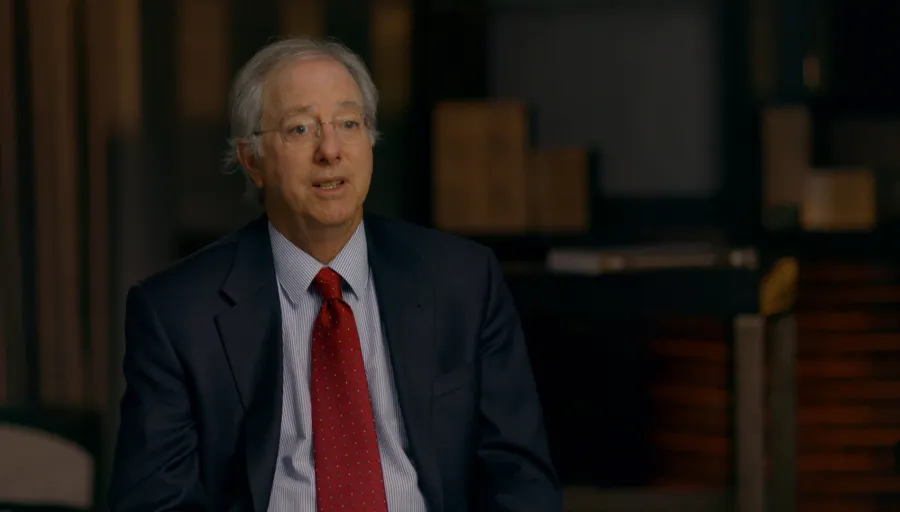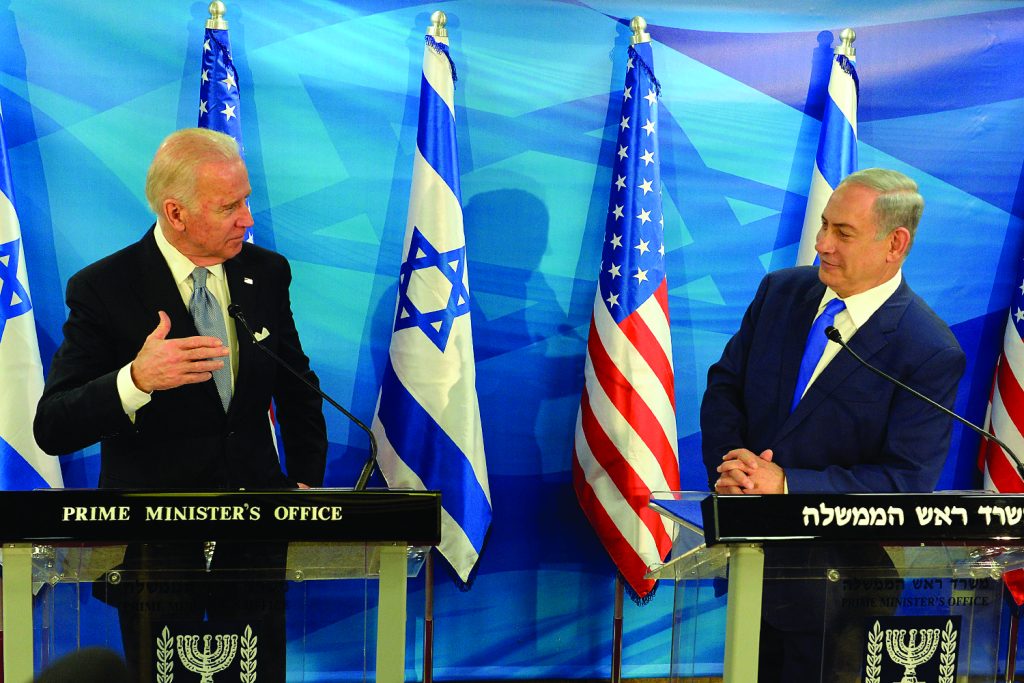Australia/Israel Review
“Iran Needs to Fear Us”
May 24, 2023 | Ariel Kahana

An interview with Dennis Ross
Ambassador Dennis Ross served as a senior advisor to three US presidents and took part in the Middle East peace process for decades.
Speaking with Israel Hayom in an exclusive interview conducted virtually ahead of Herzliya Conference 2023 at Reichman University, Ross criticised the current Administration’s policy on Iran.
“Iran doesn’t fear us the way they need to fear us. They’re on a track where they’re enriching to 60%. They clearly did a test that allowed them to produce some particles to 83.7% [enrichment level].”
Ross adds, “I would like us to change our declaratory policy and make it very clear. Rather than saying all options are on the table, we should be saying we prefer democracy, we prefer diplomacy as a way to resolve this issue, but apparently the Iranians do not. And they need to understand they have invested 40 years in a nuclear infrastructure, and they are putting that entire investment at risk.”
Ross, who worked under Presidents Bill Clinton, George W. Bush, and Barack Obama on Middle East policy, doesn’t see a breakthrough in relations between Riyadh and Jerusalem happening in the near term.
“Saudi Arabia today is different than Saudi Arabia in the past. From an American standpoint, ten years ago, if you’d asked me or anyone in the government if we knew that Saudi Arabia was going to change the source of its identity and legitimacy to modernisation, nationalism, and away from Wahhabism, we would have said, ‘Where do we sign up?’ Because Wahhabism was the ideology of al-Qaeda and ISIS… There is a social revolution taking place. Are they about to become a democracy? No. But the fact is, the scale of change… instead of being a source of Wahhabism, it now becomes one of those who is fighting that, even in an ideological sense. So the significance of that for the Middle East is huge.”
Q: So why do you believe no breakthrough is in the offing?
“Mohammed Bin Salman is determined to transform the country. As he has said to many people, he does not look at Israel as an enemy. What’s clear is that when he thinks about normalising ties with Israel, I would put it this way: There is a process where you build normal relations from the ground up, and then there’s the issue of normalisation, where you establish formal diplomatic relations. So what we’re seeing, I think, is a duality here. If you ask me, ‘Are we on the brink of normalisation?’ My answer is no. If you asked me, ‘Are we witnessing what will be a process where normal relations are built?’ My answer is yes. And by that, I mean: Israelis were invited to what the Saudis call their ‘Davos in the Desert.’ Israelis can be on panels there… There can be their readiness to invest in Israeli companies. So you’re building relations that become normal, which, if you really are focused on the meaning of normalisation, ultimately, that builds a foundation that is much more enduring and creates connections much more between peoples and societies… but it takes time.”
Q: You were appointed by the Obama Administration as an advisor on Iran. Iran has since breached all red lines, including in its uranium enrichment and spreading of terrorism against the US, and most recently it has been helping Russia in Ukraine. But the US is not willing to counter that threat. Has America chosen the wrong policy all along?
“Iran doesn’t fear us the way they need to fear us. They have to understand that the path they’re on, especially the nuclear path they’re on, is one that is extremely risky for them as they measure risk, not as we think they should measure risk, but as they measure this. The fact that they enrich to 60%, that they have 16 cascades of new centrifuges, advanced centrifuges, IR6s, in enriching the 60% level… they’re on a pathway where even if they haven’t made a decision to have a nuclear weapon, they’re putting themselves in a position where they can have the option to have a nuclear weapon. And they continue to proceed. They’re going to get to a point where not only do they have the option, but it’d be difficult to reverse it. They clearly… don’t see that is exposing them to risk. So we have got to communicate, talk to them in a way, both in words and in action, that gives them a reason to see something is different. The exercises we’re running now are good. They can reinforce the image of the words. The words are out there, but if there’s nothing that reinforces them, they won’t mean a lot.”
Ross adds that the US should provide Israel with aerial refuelling capability that would send the message that America will not stand in Israel’s way.
“Israel has bought four KC-46s. This will allow them [Israel] to be much more effective. The problem with the Iranian hardening of their targets is you will have to hit the same target multiple times in the same spot to be able to destroy it. The Iranians believe not only that we won’t act militarily but that we will stop [Israel] from acting militarily… we should push Israel to the front of the line [in KC-46s] to immediately send a message to the Iranians, that not only are we not going to stop the Israelis – we will support them.”
Ross also says the US should exact a price for Iran’s aggression against US forces in the region. “We have been hit 83 times now by Iranian proxies in Syria and Iraq; we responded three times. The problem… is that Iranians will fight to the very last of the proxies – they don’t care about proxy casualties; they care about their own casualties. We need to hit them in a way they don’t expect. If you begin to do that, they’ll also get the message, even in the region, that some of what they’re doing is more dangerous than they thought. We have to convince them by our words and our actions that they have miscalculated about us and they’re running a risk.”
Ross says the US “should take a page from the Israeli playbook, where you carry out certain kinds of strikes and you don’t admit it.”

Biden and Bibi: Ross predicts they will meet again soon, despite disagreements over the handling of judicial reforms (Image: GPO/ Flickr)
Q: Does the fact that Biden has yet to invite Prime Minister Binyamin Netanyahu undermine the relations between Israel and the US?
“No. No. Look at the scope of what we’re doing with Israel right now. We have unprecedented exercises with Israel. Unprecedented… If you ask me, ‘Will they have a meeting at some point?’ My answer is yes. Prime Minister Netanyahu said to him ‘I’ve got my hands on the steering wheel, this is my government, my decision.’ But then Finance Minister Bezalel Smotrich appears before a map that shows no Jordan and says there is no such thing as a Palestinian people. And you have Itamar Ben-Gvir’s statements. I think the whole nature of the way the judicial reform process has been handled raised questions.
“I think that Biden wants to see that Bibi is the Bibi that he’s always known. I saw plenty of their interactions in the three years of the Obama Administration I was a part of. They have a relationship that is a very interesting relationship. And I mean, it is interesting in a positive way. One of the things I’ve always felt about Prime Minister Netanyahu is when he believes that you’re a friend of Israel, he can accept all sorts of things and he views Biden genuinely and understandably as someone who has an emotional connection to Israel. Of all the presidents I’ve worked for… Biden is one of those who has, I think, maybe the strongest emotional connection to Israel, of any of the presidents that I’ve known and worked for. You saw when he went to Yad Vashem [Holocaust memorial] and bent a knee. This is Biden. His connection to Israel is an emotional one.”
© Israel Hayom (israelhayom.com), reprinted by permission, all rights reserved.
Tags: Iran, Israel, Middle East, United States






